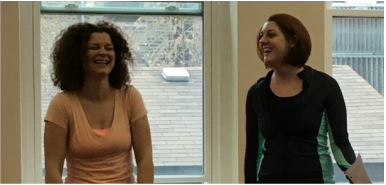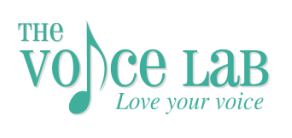
Be brave, not perfect.
–Liz Jackson Hearns
I have been observing a trend in my students lately: y’all are getting braver. You’re willing to try new and weird things, to observe changes in your voice without judgment, and to allow yourself to make entirely new sounds. This is an incredible feat! I’ve also been reading this article about the neural, motor, and somatosensory pathways that are involved in singing and the various feedback loops that occur when we make adjustments in our own voices.
Some changes, like adjusting a pitch based on what you hear from your voice and from the piano, function like a reflex. Other changes, like adjusting the timbre of your voice, require an incredibly complex and multi-layered pathway through several different sections of your brain. Not only are you listening to and evaluating your own voice and then sending commands to your motor control center to change something so seemingly small as opening your mouth a little more, but when you get it right, an entirely different part of your brain lights up because the sound that comes out doesn’t sound like your voice anymore! And now, a different part of your brain dedicated to voice recognition is blinking and telling you this is not your voice! What is coming out of your mouth right now?!
It makes me giggle a little when I see that happen: your eyes get really big, you start to laugh on the inside (whether with nervousness or delight at this new discovery), and if you can keep making that sound you start to figure out what you’re doing to achieve it. And then you make that sound again and again until the voice recognition light stops blinking.
The amount of simultaneous focus and release of inhibition (or focusing on releasing inhibition) it takes to complete this process, repeatedly, throughout your entire lesson, is astounding. And it’s exhausting! I will tell you, the students who make the most progress from week to week, who see and feel their vocal flexibility and stamina increase consistently, are laser-focused on making uninhibited sounds from the moment they walk into the lesson room until the moment they leave.
So what do I mean by singing courageously? To sing courageously, you must disregard personal judgments about your voice. This is huge. And difficult. What isn’t included in that article is the moment after we evaluate our voice and before we try to adjust it – that moment where judgment can start to creep in. It only takes a few milliseconds for inner self-talk to start up: that’s the wrong note, dummy! You should just give up on singing. You’ll never be great at this. It is so hard to come back to the place of focused non-inhibition once we start listening to that self-talk, isn’t it? What if you could by-pass that inner self-talk and move right on through from evaluation to adjustment? What might it take to do that? I think it might take a willingness to be brave, instead of being perfect.
It takes courage to turn your voice over, to expose it to the open air in front of you and let it be vulnerable. Your voice is a representation of you, and by exposing it in voice lessons, you are in effect exposing yourself. You are so brave! I encourage you to continue on this path of courageous voice use – to observe changes in your voice with self-talk that sounds like, Oh that was interesting. I think I’ll try something different next time. The pathways in your brain are working for you, to help you find that place between your old voice and your new (most authentic) voice so you can keep making beautiful and surprising sounds.
Sing courageously!



